Why You Should Care That Alexis Stewart Has Sex on the First Date, and is Proud of It
This is a post about sex on the first date...and it isn't. It is in the sense that it was inspired by the chapter "Should Sex Ever Involve Food?" in Whateverland: Learning to Live Here by Alexis Stewart and Jennifer Koppelman Hutt, which opens with sex on the first date, but the broader topic is about whether you should have sex to please yourself or whether you should have sex to please a host of other people and entities you want to impress: your partner, your friends, your parents, your religion, your employer, your society.
I'm pretty sure a hell of a lot of people privilege one of the latter over the former, because as someone who's tried my best to follow what I've felt was right, whether that involved my heart or my libido or my mind or actually none of those, I've senses, explicitly and implicitly, the questions of "But shouldn't you be worried about ___?" or, basically, you're doing it wrong. There is so much judgment and shaming around sex, and it doesn't take much to scratch the surface of our facade of live and let live. Don't use condoms (or any birth control)? Have sex on the first date? Like almost any kind of kinky sex, especially if you're a woman, especially if you're submissive? Like cross-dressing? Dare to question the gender binary? Wear inappropriate clothing? Are a sex worker, or in any way mix sex and money (cue my mom telling me she'd "support me if I needed help leaving the porn industry" - hi, hours of therapy). I could go on. There is also a tendency to be utterly narcissistic readers, to look at any first-person statements about sex, whether it's my "Uncut cocks don’t look sexual or arousing to me" (see Jewcy) or questioning whether facials (aka, someone coming on your face) are demeaning or posting a photo post-facial or an admission of not being utterly perfect with birth control and make it all about them. "But you should ____" Because I say so, is basically the "reasoning," and I find it sad that many people are on a mission to make sex so boring that it is exactly the same in every home.
The point is, I'm so glad that someone prominent is gutsy enough to simply own liking, preferring, having sex on the first date and that her friend and co-author, Jennifer Koppelman Hutt (who is married to a man) deliberately didn't have sex on the first date, but is not shaming Alexis Stewart in the book. Alexis Stewart writes, "To me, if you're not going to have sex on a first date, then I don't understand the point of the date. What better way is there to get to know someone than by having sex? If you don't have sex on the first date, it means you don't like the person enough to have sex And having sex on the first date doesn't mean the relationship won't last. Every single guy I've ever dated I've slept with (or the equivalent) on the first date." Then Jennifer Koppelman Hunt writes that she couldn't have sex on the first date (she's married now) "because I couldn't separate sex from love...If sex isn't a big deal for you, then have sex as often and as much as you want. But if you're someone who can't disconnect sex from emotional attachment, then you have to be careful, and maybe it's better to wait. Not because he's not going to want to be in a relationship with you now that he's slept with you, but because it's not something you can handle." She later writes about slut shaming and while this isn't about sex on the first date, I think it's an important message: "I didn't have sex with a lot of guys when I was dating because I didn't want to, and it took years before I had great sex and felt liberated and able to own my sexuality. You need that kind of experience before you get married, because if you've never experienced great sexual chemistry with someone, then how do you know?"
They are agreeing to have different approaches and not privileging one over the other. It's not the differing approaches I object to, it's the privileging, shaming, judging. It makes me cringe because not only is it so mightier-than-thou, it's not helpful if your true goal is to get people to change their ways (which I would hope your true goal isn't, but still). And while the examples I wrote about above are coming from the dominant culture's view of sexuality, I must add that it's not only the dominant culture that can assert its sexual hierarchies. I wrote in my column "The Non-Consensual Play Party Voyeur," about attending a play party where I felt pressured to engage in sexual activity, was simply handed a rope and became part of a BDSM scene that I in no way whatsoever wanted any part of (and wasn't even told exactly what was happening, thereby creating an unsafe environment for the woman whose leg the rope was attached to), "Despite the supposedly laissez-faire, anything-goes, no-pressure attitude, there are people who do think you’re fair game if you even set foot in such an event."
I'm not saying I'm immune to it either. There have been times in my life when I abstained from first date sex on purpose because I had enjoyed it and thought I was building something with someone only to have them never talk to me again. As I headed into 2006 I wrote the Village Voice column "New Year's Sexolutions" and wrote:
4. Save sex for date two, or later. Much as the outspoken, sex-positive, feminist side of me wants to say that girls can be just as voracious as guys, I've noticed that hopping into bed on the first date hasn't brought success for me. It's not inevitable, but especially when drinking's involved, it seems to jump-start the nascent relationship too early. The sex may still be awesome, but it's the next few days of "Should I contact him? What does he mean by 'busy'?" post-hookup confusion that makes first-date sex more trouble than it's worth. There's a line in the band Sarge's song "Clearer" that goes, "Now I mark each new morning by whose bed I climbed out of last," and every time I hear it, I remember what that was like, when I got off more on the fact of bedding new partners than on what I actually did with them. I'd rather go for quality over quantity; hopefully, waiting, even just one night, will be worth it.
But I think there's a difference between making your own informed choice and only doing something because it's what's expected. My reasons have differed over the years, and trying to parse that line of your own choice vs. what others expect is challenging, but worth it. Which brings me to a book that will help you examine those forces and make those choices...
In her excellent new book What You Really Really Want: The Smart Girl's Shame-Free Guide to Sex and Safety, which I highly recommend, Jaclyn Friedman encourages readers to write a mission statement and talks about the "Terrible Trio" of "shame, blame, and fear" and how we often react to them by pulling away from our own desires and kowtowing to what others want and expect of us. She writes:
It's important to know that we all want "wrong" things at one point or another. Our cultusre's standard of what's acceptable sexual behavior for women is so narrow it's impossible to live up to. So if you find yourself fearing your own desires because you think they're "wrong," the best thing to do is take the time to figure out which kind of "wrong" they are. Specifically, you want to ask yourself: If I acted on this desire, would anyone get hurt? If so, who and why?
That is an intelligent, sensible, self-centered (not in the obnoxious way, in the taking-care-of-yourself way) approach to the topic, and any time you have someone dictating from on high how long you should wait before having sex or how many partners is too few or too many or what kinds of sex acts are right or wrong, you have a problem. In the wake of What's Your Number? there's been both criticism of the concept as well as these "whatever number you have is okay" type pieces, and yet there is still an idea that, especially for women, you can have a number that's too high, that means there's something wrong with you.
So the point is not what you personally think about sex on a first date, facials, play parties, etc., but whether you assume everyone should act the way you do. It doesn't mean you have to want to date or sleep with or even be friends with someone who does something you're not into, but that you don't assume that your opinion is better than someone else's opinion. It's not.
Labels: Alexis Stewart, dating, Jaclyn Friedman, Jennifer Koppelman Hutt, sex on the first date, sexual freedom, sexuality, What You Really Really Want, Whateverland























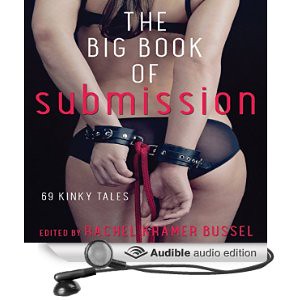 The Big Book of Submission: 69 Kinky Tales
The Big Book of Submission: 69 Kinky Tales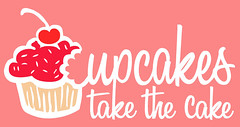


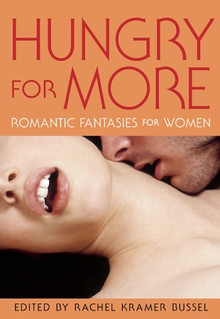

 Flying High: Sexy Stories from the Mile High Club
Flying High: Sexy Stories from the Mile High Club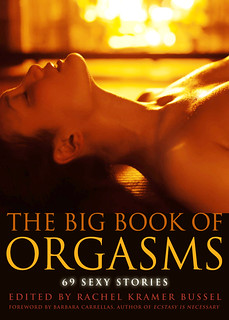


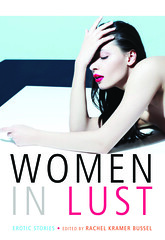













0 Comments:
Post a Comment
<< Home